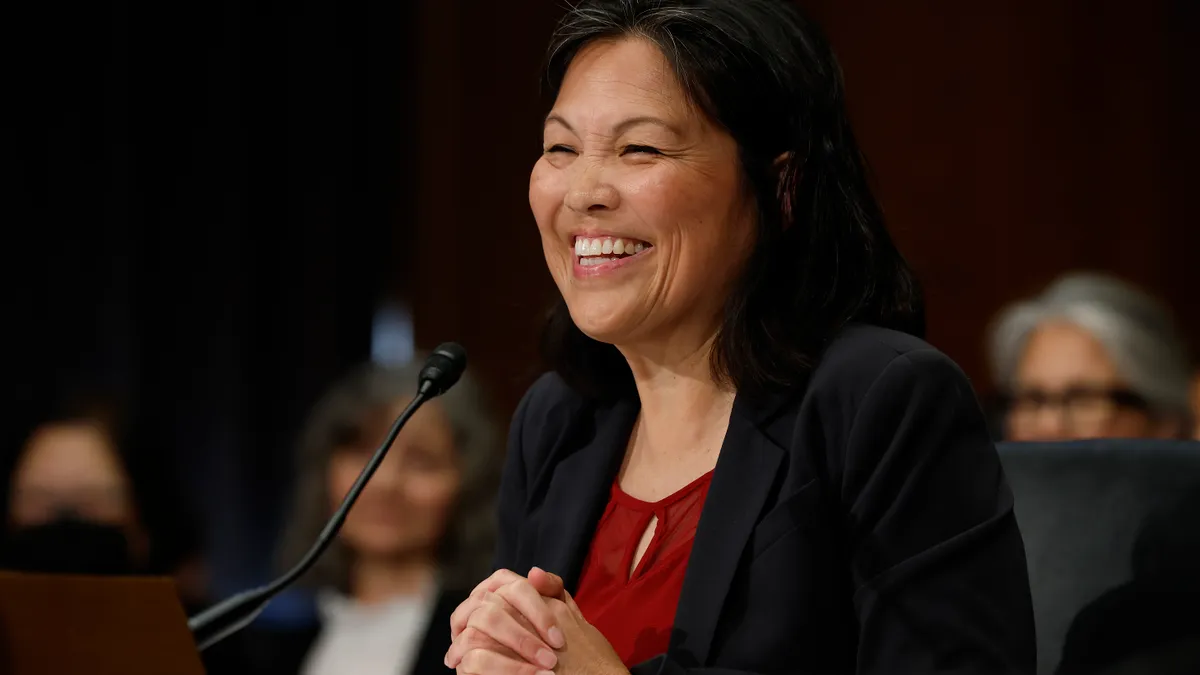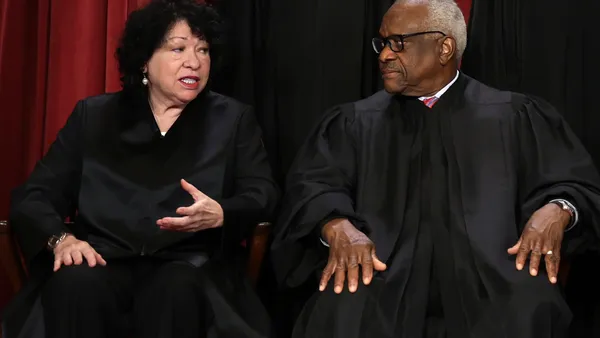WASHINGTON, D.C. — “The Biden-Harris administration has your back.”
That was the bottom line from Acting Labor Secretary Julie Su when she addressed attendees at a conference hosted by The Association of Union Constructors Wednesday.
Su, who has led the Department of Labor since March 11, doubled down on the Biden administration’s dedication to pro-labor efforts, saying that what benefits workers benefits employers and the nation as a whole. She highlighted many of the labor-focused efforts the administration has pursued.
Examples include the first Davis-Bacon rule change in 40 years, an executive order mandating project labor agreements on many government-funded projects and the Mega Construction Project Program, which provides project owners free assistance with training and recruiting local workers on 23 projects over $35 million.
Trade groups representing nonunion or open shop contractors haven’t celebrated those changes, and some have sued the federal government over the Davis-Bacon rule update, claiming it would raise project costs and contribute to higher taxes.
The president has not consistently supported unions amid the recent swell of labor unrest: A year ago, Biden signed legislation blocking a national strike from railroad workers.
Su repeatedly emphasized “paving the high road,” in construction labor, both literally and metaphorically.
“For too long, the story that we’ve been told is to cut corners,” Su said, indicating that in construction, a race to provide the lowest bid can result in project delays and safety concerns. “I challenge you to raise your voices against those that defend themselves for taking the low road.”
Labor climate
2023 was a “crucial turning point” for construction, due to the flow of major tranches of federal funding from the Infrastructure Investment and Jobs Act, the CHIPS Act and the Inflation Reduction Act, The Association of Union Constructors President Justin Bruce, executive vice president of New Castle, Pennsylvania-based Bruce & Merrilees Electric Co., told attendees.
At the same time, he called attention to what he said was a nationwide groundswell of support for organized labor, due in part to a series of strikes in other industries that have secured new contracts. There’s still high demand for tradeworkers amid an insufficient supply.
Warren Fairley, international president of the International Brotherhood of Boilermakers, said he’d found a bit of a stopgap.
Under his leadership, Fairley said the Boilermakers have collaborated with other unions — specifically Ironworkers — to offer workers the opportunity to work on other labor groups’ jobsites as needed. When Boilermakers perform for the Ironworkers, the benefits get paid into the Boilermakers’ union.
Fairley said the practice was optional, but he has made an effort to look at other trade unions as allies, rather than competitors.
“It’s time we stopped letting the term ‘organized labor’ be an oxymoron,” Fairley said.
CORRECTION: This article has been updated to accurately reflect Warren Fairley’s title.














